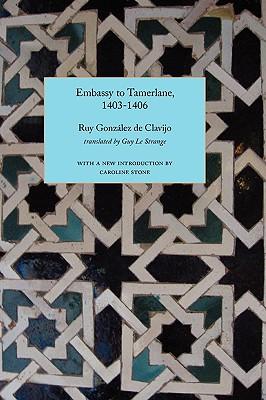In the year 1400 the princes of Europe sympathetically were much bestirred, fearing the imminent fall of Constantinople and the extinction of the Eastern Empire. The Ottoman Sultan Bzayd (otherwise Bajazet) was already in possession of almost the whole of what subsequently became Turkey in Europe. The Emperor Manuel still was lord of Constantinople, but beyond the city walls possessed a mere strip of territory along the north coast of the Sea of Marmora, and extending to the Black Sea, a strip some fifty miles in length but under thirty in breadth. Four years before (September 1396) an immense composite crusading army under the leadership of the Count of Nevers (a cousin of king Charles VI of France) had marched against the Turks to the support of king Sigismund of Hungary. But the Christians had been completely routed by Sultan Byazd at Nicopolis on the lower Danube, an immense number of them had been killed, a lesser number made prisoners (who later had to be ransomed at heavy cost), and Europe in terror, the Emperor Manuel now shut up in Constantinople, all were waiting to learn what the Sultan next would do. From their capital established at Brusa the Turkish Sultans, past and present, had fomented many conspiracies at the Imperial Court. The father of Manuel had been the Emperor John Pal ologus (1341-1391) and Manuel's elder brother Andronicus had at an early age been proclaimed Emperor elect.1 In the days of Byazd's father Sultan Murd (1360 to 1389) his eldest son Svaji had made a conspiracy with Andronicus whereby these two young princes had purposed to dethrone their respective fathers. The conspiracy miscarried, Svaji was put to death which brought his younger brother Byazd later to be Sultan, and Andronicus (in company with his young son John) was shut up in the Constantinople State prison, the celebrated Tower of the Anemas. As a result Manuel his younger brother then became heir-apparent and co-Emperor. But in Constantinople after two years the tables were turned by a palace plot. The Emperor John Pal ologus and Manuel found themselves in the Anemas Tower, while Andronicus (with John the younger) assumed the purple. Kaleidoscopic changes again ensued; the old Emperor and Manuel after two years' detention managed to make their escape from durance and regained power: Andronicus was outlawed and banished. Later, however, with John the younger, he was established in the government of Selymbria, a city on the Sea of Marmora, a few miles west of Constantinople, and the peace lasted some years.

In the year 1400 the princes of Europe sympathetically were much bestirred, fearing the imminent fall of Constantinople and the extinction of the Eastern Empire. The Ottoman Sultan Bzayd (otherwise Bajazet) was already in possession of almost the whole of what subsequently became Turkey in Europe. The Emperor Manuel still was lord of Constantinople, but beyond the city walls possessed a mere strip of territory along the north coast of the Sea of Marmora, and extending to the Black Sea, a strip some fifty miles in length but under thirty in breadth. Four years before (September 1396) an immense composite crusading army under the leadership of the Count of Nevers (a cousin of king Charles VI of France) had marched against the Turks to the support of king Sigismund of Hungary. But the Christians had been completely routed by Sultan Byazd at Nicopolis on the lower Danube, an immense number of them had been killed, a lesser number made prisoners (who later had to be ransomed at heavy cost), and Europe in terror, the Emperor Manuel now shut up in Constantinople, all were waiting to learn what the Sultan next would do. From their capital established at Brusa the Turkish Sultans, past and present, had fomented many conspiracies at the Imperial Court. The father of Manuel had been the Emperor John Pal ologus (1341-1391) and Manuel's elder brother Andronicus had at an early age been proclaimed Emperor elect.1 In the days of Byazd's father Sultan Murd (1360 to 1389) his eldest son Svaji had made a conspiracy with Andronicus whereby these two young princes had purposed to dethrone their respective fathers. The conspiracy miscarried, Svaji was put to death which brought his younger brother Byazd later to be Sultan, and Andronicus (in company with his young son John) was shut up in the Constantinople State prison, the celebrated Tower of the Anemas. As a result Manuel his younger brother then became heir-apparent and co-Emperor. But in Constantinople after two years the tables were turned by a palace plot. The Emperor John Pal ologus and Manuel found themselves in the Anemas Tower, while Andronicus (with John the younger) assumed the purple. Kaleidoscopic changes again ensued; the old Emperor and Manuel after two years' detention managed to make their escape from durance and regained power: Andronicus was outlawed and banished. Later, however, with John the younger, he was established in the government of Selymbria, a city on the Sea of Marmora, a few miles west of Constantinople, and the peace lasted some years.